Achieving sobriety is an accomplishment. However, detox and subsequent addiction treatment are just two steps on the path to recovery. The most significant challenges typically begin after treatment, when individuals begin to acclimate to sober living without the structure, support, and routine of a treatment program.
Maintaining recovery is an ongoing process of decisions and actions made daily, often in the face of external factors and influences that can be triggering. A continuing care program is crucial to the recovery process and the ability to maintain lasting sobriety.
Athens Recovery is a family-owned outpatient treatment center in Georgia. Here, we recognize the importance of a continuing care program to help clients maintain their hard-earned sobriety, even through the most challenging times. Call 844.959.4998 to learn about the importance of a continuing care program for addiction and how we can help.
What Is a Continuing Care Program?
A continuing care program refers to the assistance and support services clients receive after completing their primary addiction treatment program. The main goals of continuing care are to help clients maintain their sobriety and prevent relapse by providing individualized continuing care plans to meet each client’s unique needs.
Athens Recovery’s continuing care program supports clients in implementing the tools and skills acquired in treatment in their daily lives. Components of continuing care include:
- Individual counseling sessions
- Support group meetings
- Medication management
- Psychiatric care
- Life skills training and support
- Case management services
As clients recover, continuing care services are adapted to meet their changing needs and recovery goals.
The Importance of a Continuing Care Program for Addiction
The highest risk of relapse is in the first few months following treatment, which is why a continuing care program for addiction is so important. While a continuing care plan cannot eliminate the potential for relapse, research shows that those who participate in continuing care programs have lower relapse rates than those who do not.
Upon completion of addiction treatment, most individuals return to the same home environment and community they were in before treatment, exposing them to potential triggers that can jeopardize their sobriety. A continuing care program provides the support to help individuals stay sober during this transitional time.
Benefits of a Continuing Care Program
The benefits of a continuing care program for addiction include the following:
- Sustained sobriety – A continuing care program helps individuals stay committed to their sobriety and focused on their recovery goals.
- Structured support systems – Ongoing therapy sessions and support groups provide a structured environment to share experiences, receive feedback, and build a peer support network.
- Relapse prevention skills – Continuing care programs focus on teaching practical skills to prevent relapse, including coping mechanisms, stress management, and strategies for handling cravings and triggers.
- Accountability – Regular check-ins help foster accountability. Knowing others are invested in their recovery can motivate people to stay on track.
- Education and awareness – By providing education about addiction, continuing care programs empower individuals to make informed decisions and understand the importance of ongoing self-care.
- Building a support system – Those in continuing care programs develop connections with others facing similar challenges, forming the foundation of a health support system.
- Preventing isolation – Regular engagement in continuing care programs helps reduce isolation, a common challenge in recovery.
- Integration into daily life – Continuing care helps people integrate recovery practices into their daily lives, allowing them to sustain long-term sobriety.
Participation in a continuing care program for addiction can help individuals identify potential issues and address them before they develop into more significant problems, including relapse.
Call Athens Recovery Today for Continuing Care for Addiction
Continuing care plays a pivotal role in the journey to addiction recovery by offering ongoing assistance, fostering personal growth, and promoting a lasting, substance-free lifestyle. In the continuing care program at Athens Recovery, clients and their families have access to resources, including evidence-based and holistic therapies and practices that support recovery.
If you or a loved one is struggling with active addiction or needs recovery support, Athens Recovery is here to help. Call 844.959.4998 or contact us online to learn more about our programs.

